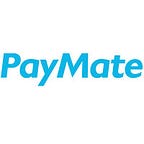By Ashwin Shenoy, VP — Sales, CEMEA, PayMate (@AshwinShenoy12)
As you start reading this piece, you are probably thinking ‘what’s a payment article doing at a time when the whole world is grappling with the COVID-19 scare?’. We all are in a state of lockdown, exercising social distancing and restraint, and governments all over are doing the best they can to beat the situation at hand. And like always, we, the human race will come out on top. But what after?
A pandemic like COVID-19 shakes the entire economy of any country, right from general businesses, stock markets, tourism and related industries, and batters the day to day lives of civilians. Most cities are in a state of lockdown, forcing people inside their homes, and converting buzzing cities into ghost towns. And when this happens, with the mass hysteria, you have a situation where everyone fears the worst, stock piling essentials, groceries and yes, running out of cash.
Like COVID-19, similar pandemics like SARS & H1N1 caused a major dent to economies. Even the 1918 Influenza Pandemic (a.k.a. Spanish Flu) led to an economic depression in 1920 just after WWI. We have all seen how the stock markets have behaved in the past few weeks, businesses have no takers and the overall industrial production has slowed down. The global macroeconomic impact of SARS was estimated at USD 30–100 billion, and the Asian States alone lost USD 12–18 billion as the SARS crisis depressed travel, tourism, and retail sales. We will have similar numbers this time too.
An engaging conversation with a friend made me realize that while combating this virus is difficult and most important at this stage, but coming out of it is going to take a lot longer. Let’s take the tourism or the airline industry as an example. We have all heard of unpaid mandatory leaves and mass layoffs as a result of the slump in demand. It is obvious that this will lead to mass suspension of public & private debt obligations (such as housing & interest payments). Airlines and tour operators on the other hand, face the onerous task of paying their vendors for the inventory bought, and refunding customers because of the travel ban. If you look at general trade, the hoarding activity creates a skewed demand-supply curve, and traders are left with huge unsold inventory. Everyone would want to protect cash, and payments to suppliers are just not going to happen. And as we attempt to slow down the economic clock to beat the virus, each day is going to hurt in a big way. Working capital management is out of the window, and businesses are on the verge of a partial/full shutdown because of the prevalent situation.
I agree that not everything can be solved by governments, but what is really needed are fiscal measures to save companies and banks from bankruptcy, so that they can recover quickly once the pandemic is over. Access to credit, atleast in the B2B marketplace would help thousands of businesses and SMEs defer reaching out to their own balance sheets by a few months. Smaller suppliers and vendors would readily extend early payment discounts, as that would ensure business continuity. B2B is the heart of the supply chain ecosystem, and we need to protect it with all forms of credit policies and tax reliefs to ensure a healthy, consistent demand supply curve, and avoid mass unemployment and scarcity of essentials.
We are a few months away from normalcy, and we have to keep it watertight now to avoid slippages and shutdowns. Like I said before, I am confident that we will come out on top here, and will defeat the virus. But let us all join hands in ensuring that our lives, our businesses, our economy isn’t hurt beyond repair by taking small, effective measures to protect them in the interim.
Three cheers to all of us and the fantastic work done by all the health professionals & government officials in clamping down COVID-19!
